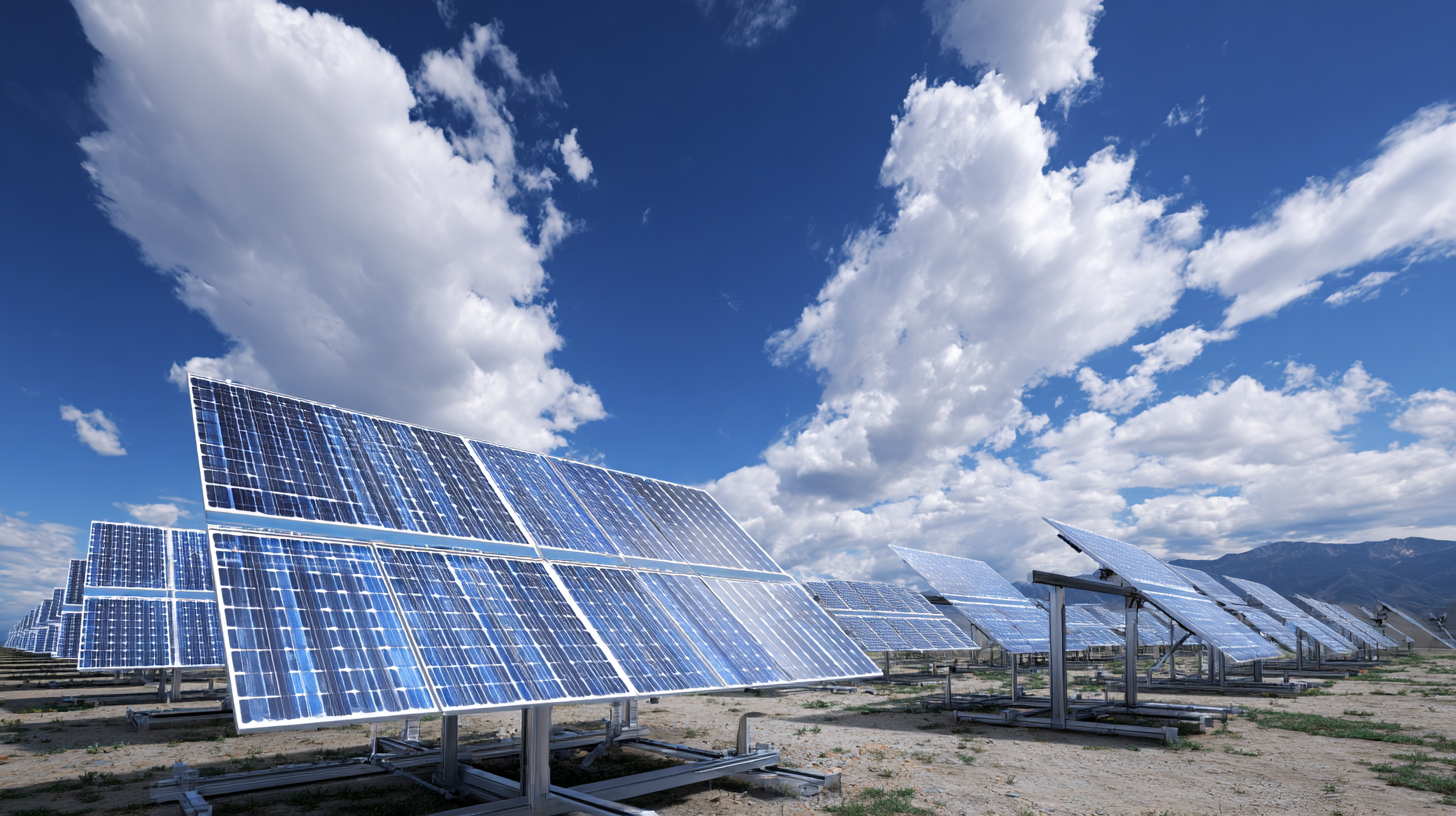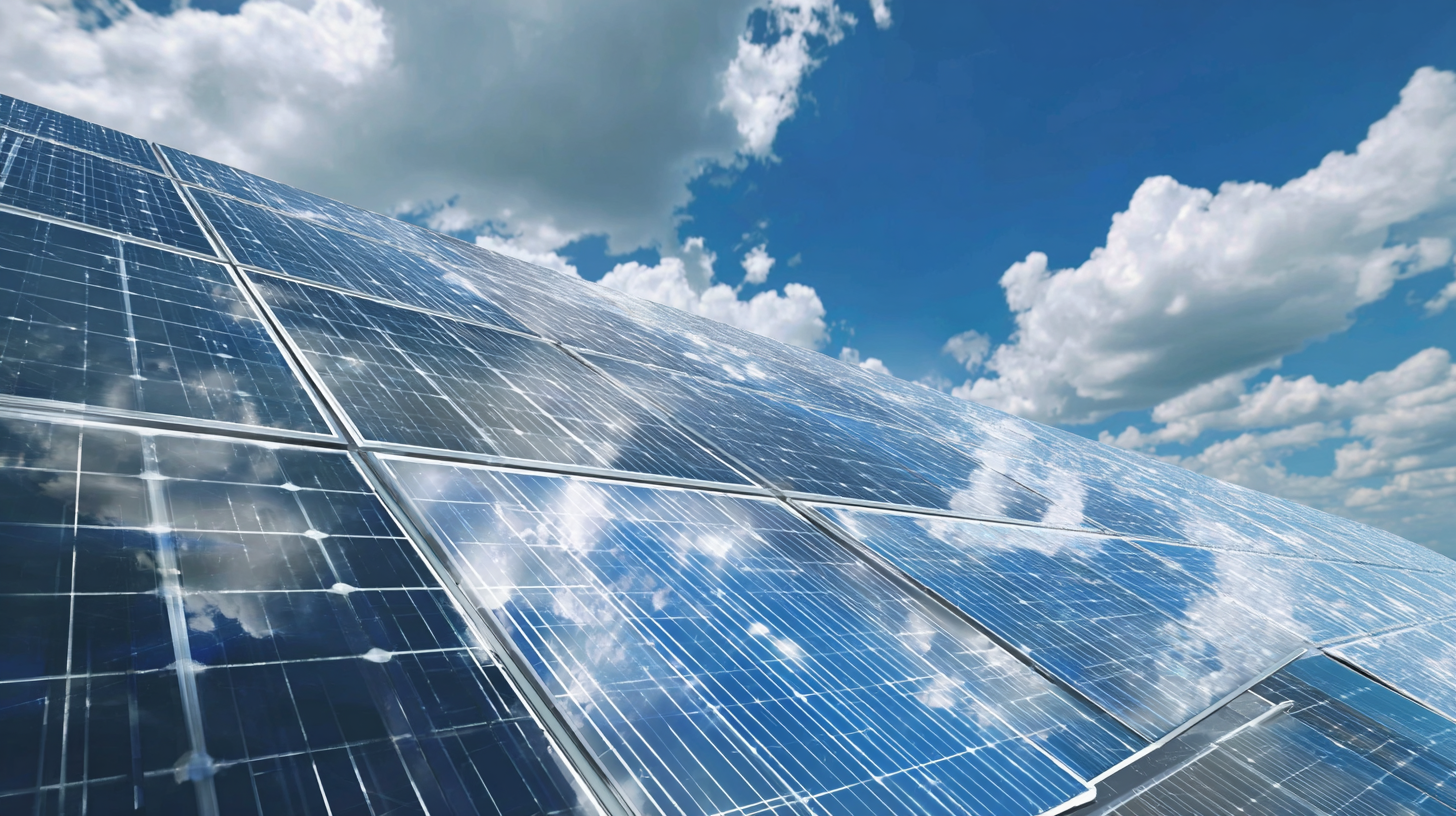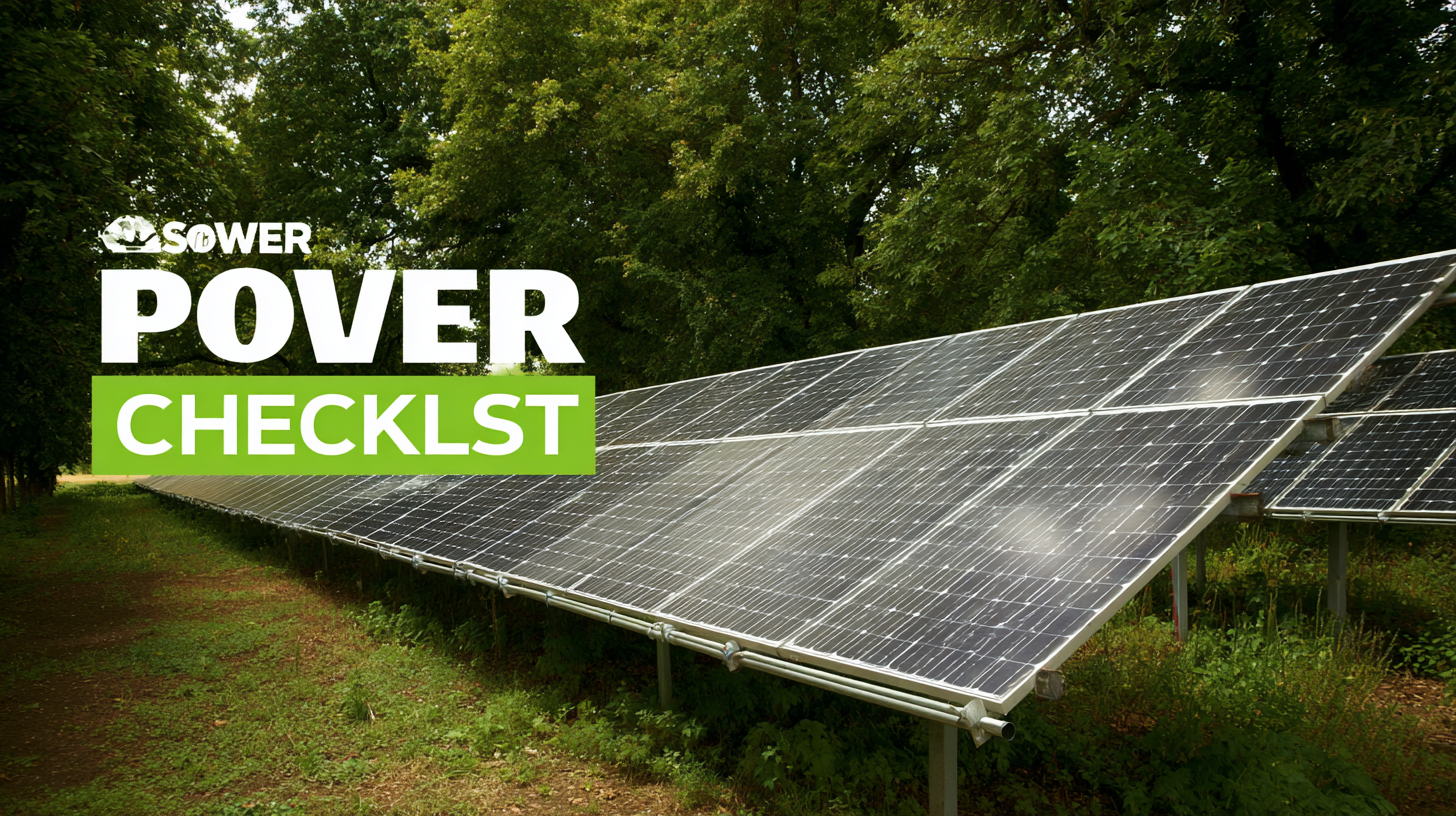Blog
- Home
- Blog
Ultimate Checklist for Choosing the Best Power Solar Panels for Your Energy Needs
When it comes to harnessing renewable energy, choosing the right Power Solar Panels is crucial for maximizing efficiency and meeting your energy needs. As the global demand for sustainable power solutions continues to rise, advancements in solar technology, especially from leading manufacturers in China, bring a wealth of options to consumers and businesses alike.

This ultimate checklist is designed to guide you through the myriad of choices available in the market, ensuring you consider essential factors such as panel efficiency, durability, warranty offerings, and the reputation of manufacturers. By understanding these key aspects, you can make informed decisions that not only reduce your carbon footprint but also enhance your energy independence and cost savings.
Dive into this comprehensive guide to discover how to select the best Power Solar Panels tailored to your specific requirements.
Key Industry Standards for Solar Panel Production
When selecting power solar panels for your energy needs, it’s essential to consider key industry standards that ensure quality and efficiency. One of the primary standards is the International Electrotechnical Commission (IEC) certification, which guarantees that solar panels have undergone rigorous testing for performance and durability.
According to a report from the National Renewable Energy Laboratory, solar panels that meet IEC 61215 standards are likely to have a lower risk of failure and higher energy yield, providing peace of mind for long-term investments in solar technology.
Another critical aspect to evaluate is the certifications from Underwriters Laboratories (UL), particularly UL 1703, which focuses on the safety and performance of solar modules. Data from the Solar Energy Industries Association indicates that panels with UL certification have a significantly lower likelihood of safety incidents, making them a reliable choice for consumers.
By investing in panels that adhere to these industry standards, you not only enhance the efficiency of your energy system but also contribute to the broader goal of promoting safer and more sustainable solar energy practices.

Understanding Solar Panel Certifications and Their Importance
When selecting solar panels for your energy needs, understanding the various certifications can significantly enhance your decision-making process. Certifications such as the International Electrotechnical Commission (IEC) and the Underwriters Laboratories (UL) mark ensure that the panels have been rigorously tested for quality and safety. These certifications not only validate the efficiency of the solar panels but also assure you that the product meets industry standards, providing peace of mind against potential failures and safety hazards.

Additionally, looking for solar panels that have a Tier classification can guide you in choosing higher-quality products. Tier 1 panels, produced by established manufacturers with robust financial backing, are generally considered more reliable. These panels are often associated with better performance, longevity, and warranties, which are crucial factors for anyone looking to invest in solar energy. By prioritizing certified and tiered panels, you not only secure the effectiveness of your solar energy system but also protect your investment for years to come.
Evaluating Efficiency Ratings in Solar Panel Technology
When selecting solar panels, understanding efficiency ratings is crucial to making an informed decision that meets your energy needs. Efficiency refers to the percentage of sunlight that a solar panel can convert into usable electricity. High-efficiency panels, typically rated between 18% and 22%, can generate more power in a smaller space, which is particularly beneficial for homes with limited roof area. Additionally, as technology advances, panels with efficiencies exceeding 22% are emerging, paving the way for even greater energy production.
Moreover, it's important to evaluate the efficiency in the context of the whole solar energy system. Factors such as installation angle, shading, and geographical location can affect overall performance. Therefore, while comparing panels, consider not only the efficiency rating but also the warranty and degradation rate—how quickly the panel loses efficiency over time. By prioritizing these factors, you can ensure that you select the best solar panels that align with your energy requirements and maximize your investment in renewable energy.
Ultimate Checklist for Choosing the Best Power Solar Panels for Your Energy Needs - Evaluating Efficiency Ratings in Solar Panel Technology
| Solar Panel Type | Efficiency Rating (%) | Power Output (W) | Warranty (Years) | Cost per Watt ($) |
|---|---|---|---|---|
| Monocrystalline | 20.5 | 300 | 25 | 2.50 |
| Polycrystalline | 15.5 | 270 | 25 | 1.80 |
| Thin-Film | 11.0 | 160 | 10 | 1.00 |
| Bifacial | 22.0 | 350 | 30 | 3.00 |
Comparing Warranty Options and Manufacturer Reliability
When choosing power solar panels, understanding warranty options and manufacturer reliability is crucial for long-term satisfaction and investment protection. Manufacturers typically offer warranties ranging from 10 to 25 years, covering performance and workmanship defects. A comprehensive warranty not only guarantees 80% to 90% of the panel's performance over its lifespan but also reflects the manufacturer's confidence in their product. For instance, panels with a 25-year performance warranty are generally a safer investment, indicating that the manufacturer stands behind their technology.
In addition to performance warranties, it's essential to evaluate the reliability of the manufacturer. Industry studies have shown that companies with a solid track record often have lower failure rates and provide better customer support. For example, nearly 70% of customers prioritizing brand reputation experienced fewer issues with their systems, leading to a smoother ownership experience. By comparing different manufacturers and their warranty offerings, potential solar panel buyers can make informed decisions that align with their energy needs and financial goals, ultimately ensuring a dependable source of clean energy for years to come.
Latest Trends in Solar Panel Compliance and Regulation
As solar energy continues to gain traction as a primary source of power, understanding the latest trends in compliance and regulation becomes essential for both consumers and industry stakeholders. Regulatory bodies are increasingly focused on creating standards that not only ensure the safety and efficiency of solar panels but also promote sustainability and environmental responsibility. The transition to strict compliance measures has been driven by the need to maximize the effectiveness of solar installations while minimizing their ecological footprint.
Moreover, evolving regulations often dictate the materials and technologies used in solar panel manufacturing. With many countries implementing stringent guidelines to reduce hazardous substances and improve recyclability, manufacturers are now adopting innovative materials and eco-friendly practices. This shift not only helps companies stay compliant but also appeals to environmentally conscious consumers. Staying informed about these trends is crucial for anyone looking to invest in solar panels, as choosing compliant products can enhance energy efficiency and potentially lead to tax breaks or incentives.
Ultimate Checklist for Choosing the Best Power Solar Panels for Your Energy Needs
This chart illustrates the average efficiency ratings across different types of solar panels available in the market. The data represents the performance of monocrystalline, polycrystalline, and thin-film solar panels in terms of energy conversion efficiency.